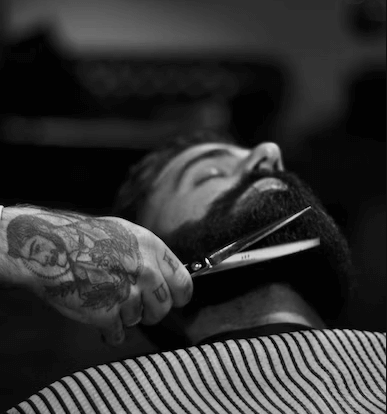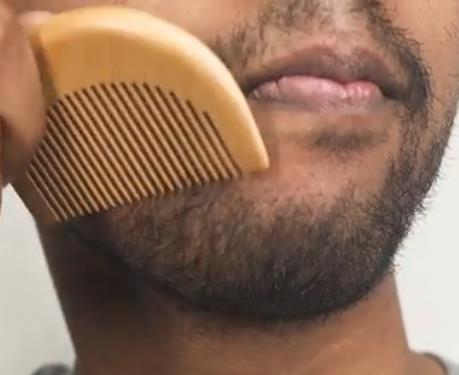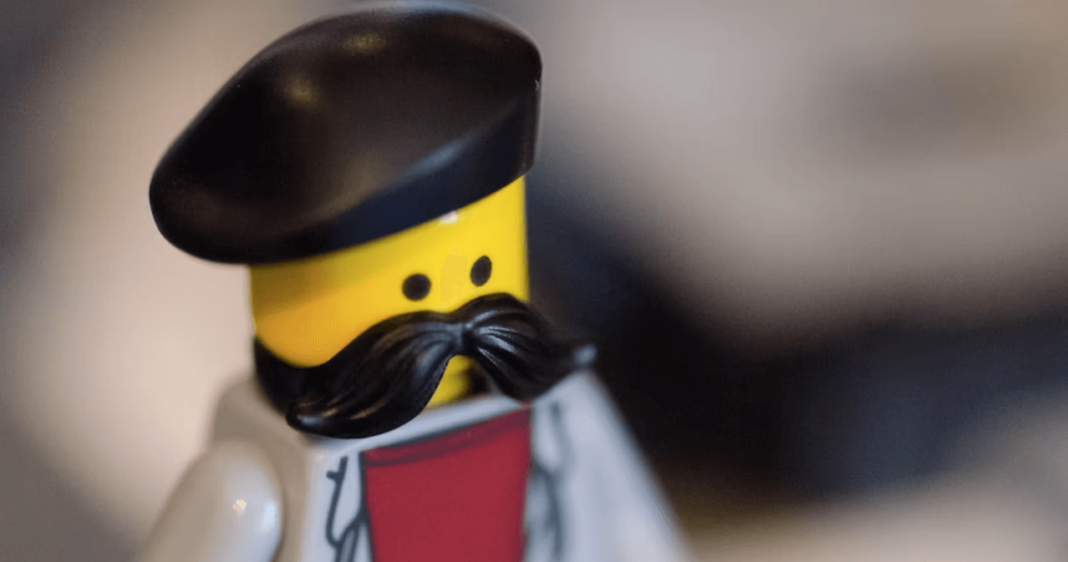The truth is that sometimes being patient for a full beard to develop can feel like patiently waiting for the end of the world. At times, the urge you feel amidst your optimism when awaiting your beards can easily become pessimistic that it becomes irritatingly annoying. You want that beard so badly, but it seems as though it is never going to grow up. Well, I’ll show you why in this article. If you’re reading this, there’s a good probability that you’re attempting to find strategies to grow your beard faster. Or you might simply be wondering how long it takes to grow a beard. In some cases, the delay in beard growth could make you believe that what you’re doing is incorrect or that there is a problem with your beard. However, on the contrary, all you need could be a little diligence.
How Long Does it Take to Grow a Beard?

I remember when I started having beards as a young adult, the major question on my mind was how long it takes to grow a beard. I was so restless and concerned about my beard that I would look in the mirror every now and then. I thought this was particular to me until I discovered that every man was once in my shoes. Later on, I came to realize that every man and every beard is unique. So to answer the question of how long, I’d say it depends on the individual. This implies that while some people have their beards growing very fast, some males are not even able to grow beards at all. More seriously, some people can only grow hair on their chin and upper lip.
How Much Beard Can I Grow in a Week?
As I’ve already said, not everyone can grow a beard/mustache. However, the length of time it takes to grow a beard still differs from person to person. Studies show that the average man’s beard could grow up to about 3mm in a week, which could be equivalent to a growth rate of about 1/2 inch each month. And for many people, the pace of hair growth varies depending on where on the face it occurs. I could have my mustache growing faster than yours while you could have your beard growing faster than mine.
One important thing to acknowledge when comparing the rate of beard growth is that the rate at which a beard develops initially will differ from the rate at which it grows, say, a year later, because beard development is not always constant over time.
For those with the least rate of beard growth, I believe even the most patchy beard should fill in within six months. Depending on your genetics, it will typically take a man between two and three months to grow a full beard.
Can I Accelerate Beard Growth?

If you want, you can accelerate beard growth by learning how your beard develops and the best ways to protect it and the skin underneath. In essence, you need to have studied your beard and skin before attempting to accelerate beard growth.
Before I continue, I’d like to address a common misconception: does shaving speed up hair growth? The question has generated lots of responses over time. However, the belief that shaving more regularly can accelerate beard development is a prevalent misconception about beard growth. Let me explain: when you shave stubble, it seems to come back thicker, but this is just because the narrow tip has been removed. Since the hair shaft has no tip, when the beard hairs continue to develop from the hair follicle, they appear thicker. So when you talk about beard growth, shaving your beard is obviously ineffective. Nevertheless, trimming your beard regularly can promote beard growth.
Having said this, it should come as no surprise if I said that a healthy beard on a healthy body tends to develop more quickly. Just like soil and plants, plants tend to grow well when they’re planted in good soil. In the same way, our skin could be the soil in which our beards thrive. Therefore, when you consciously take care of both yourself and the beard you’d be surprised to see how your beard would grow quickly. Additionally, working on your muscle growth and staying nourished are also excellent strategies. When you engage in a healthy, diverse diet, regular exercise, and adequate sleep, your skin would be in good condition and your beards would grow well. Also, the skin, follicles, and beard will remain healthy and nourished if beard oils are used to moisturize the beard and rejuvenate the skin on the face. Your beard will undoubtedly stay smooth, hydrated, and clean if you regularly wash it with a shampoo made specifically for beards. Additionally, beard balm could help shield your beard from the toughest weather conditions.
Do Beard and Mustache Grow Overnight?
Have you ever wondered whether or not your beard would stop growing when you’re asleep? Well, the answer is simple; your beard will not stop but continue to grow while you sleep. The majority of men would concur that the growth of hair on your face and beard development will reduce at night because at night time your body slows down while you rest. But then, one theory indicates that getting more sleep will assist your beard grow more quickly the other times of the day. No matter what you believe, I’d advise that you ensure to maintain good sleep habits as it goes a long way to help your body generally.
What Could Cause Delay or Slow Beard Growth?

I understand that it can be frustrating to experience slow beard growth when you truly want your beard to grow out fast. If you want your beard to grow out quickly but it’s just not working, there are numerous viable explanations. Your beard may grow more quickly or more slowly, or it may not grow in all the locations you want. This “abnormality” depends on your hormones, age, genetics, ethnicity, and medical issues.
Let’s examine some of the core reasons that may cause your beard not to grow fast or not even grow at all.
1. Your Hormones
Without a doubt, beard growth will be aided by a healthy body, and the contrary would be true for a sick body. Your face’s skin will receive less blood flow if your blood circulation is poor, which will starve the hair follicles of nutrients. Additionally, you might not be getting all the vitamins and minerals you need to generate testosterone if your diet is poor. As a result of this, growing a beard may be more challenging for people with low testosterone levels. To assist combat low testosterone, discuss with your doctor or therapist whether you should attempt testosterone therapy or take supplements.
2. Your Ethnicity
I wouldn’t want to dwell much on this, but the truth remains that the rate of your beard growth sometimes has to do with your ethnicity. More so than others, some ethnic groups have hirsute skin. For instance, if you take a closer look at typical Chinese men, they literally have less facial hair than white men, whereas men with Mediterranean ancestry typically have fuller beards.
3. Genetics
Beyond your ethnic background, your ability to grow a full beard or the rate of your hair growth is greatly influenced by the characteristics of your immediate family. Similar to this, your DNA could also be a non-avoidable determinant of your hair’s texture. Hair patterns do seem to be inherited (though there are a few exceptions), you can look to your older male relatives for hints on the direction your beard will take.
4. Using Wrong Products

Even if your body has everything in order, improper application, or using the wrong products for beard care is a likely reason that could slow down your beard’s growth. Your beard and the skin on your face will get dry if you use the wrong kind of beard wash or if you skip using beard oil and beard balm. Consequently, you may experience beard itch, dead skin, and a slow-growing beard.
5. Age Factor
Even if you develop beards at an early age (like 15 maybe), your beards may not appear to be full but scanty. This is because normal beard growth can begin at the age of 18. However, for some people that period may not come until they are 30. So, sometimes when you don’t get the desired result, you just need to relax and wait for the right time. Don’t get yourself worked up or overly concerned. It could be that your time for fuller beards is not yet right.
Beard Hair Growth Stages
For the information, your facial hair could grow in three stages (or phases), much like the hair on our scalp. The three stages include:
1. The Anagen Stage
This stage of the beard’s growth (which is the first stage) can last anywhere from a few months to a year. And depending on your genetics, this period can see your facial hair grow up to half an inch per month.
2. The Catagen Stage
The Catagen stage is the second stage. During this transitional stage, some hair strands break from the follicle and the hair stops growing. Additionally, the follicles’ blood supply is cut off. All of this is done to get ready for the next phase.
3. The Telogen Stage
The Telogen stage is the final stage and where new things emerge to replace the old. The old hairs are gradually pushed out as the new hairs come up beneath them. Sometimes, you might worry that you’re going to lose your gorgeous full beard during this time, but your beard is simply renewing. This process is entirely different from hair loss.
Conclusion
Summarily, it’s right to conclude that the length of time it takes to develop a beard and the final appearance differ from person to person. Expect to wait a few months before achieving your objective if you’re aiming to grow a full beard. This calls for patience and keeping an eye out for symptoms of any illnesses that can slow the growth of your beard.
Even if the same set of people shave off their beards the same day and at the same time, their beards/mustaches cannot grow the same length and the same way. While some would be normal, others could be overgrown while some would experience stunted growth.
Consult a dermatologist or your doctor if you’re worried about the state of your beard because your health can alter the growth of your beard in numerous ways, which might affect how much hair grows on your face or your scalp.
For example, Alopecia barbae or alopecia areata, are some underlying medical problems that could cause beard hair loss or make it more difficult to grow a beard.
The ailment, alopecia areata, happens when the immune system of the body unintentionally targets healthy hair follicles. Thin or no facial hair can also be caused by unusual disorders, such as prolactinoma, a noncancerous tumor of the pituitary gland.

 By Jason
By Jason






